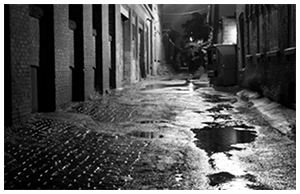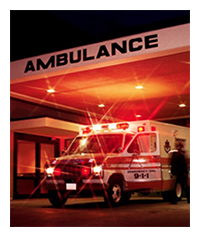Back alley abortions. These three words commonly used by pro-abortion activists bring to mind a desperate woman secretively knocking on an unmarked door, whispering the name of a friend who referred her. The phrase conjures images of dirty instruments, brutal pain, infection and death.
With abortion now widely available—legal, safe and rare, so we’re told—this gruesome image is supposed to be a horror of the past.
Except it isn’t.
An Internet search on the phrase botched abortion brings up 540,000 results in a split second. Here’s a sampling from just the first page:
911 Call Warned Woman Dying from Botched Abortion (March 2014)
Planned Parenthood Settles $2 Million Case After Botched Abortion (Feb. 2014)
New lawsuit: Planned Parenthood forced, botched abortion (Feb. 2013)
Autopsy Proves Planned Parenthood Killed Woman in Botched Abortion (Sept. 2012)
 And of course, the horror of Kermit Gosnell’s legal back-alley-style butcher shop in inner-city Philadelphia made headlines around the world.
And of course, the horror of Kermit Gosnell’s legal back-alley-style butcher shop in inner-city Philadelphia made headlines around the world.
The truth is, while “legal” still plagues those who fight against abortion and “rare” has long since surrendered, even “safe” offers no guarantee at all. The back alley is now Main Street, with the blessing of the U.S. Supreme Court.
In February, the New York Times published an article describing the career of abortionist Steven Brigham, who’s as notorious for his self-proclaimed innocence as he is for the dangerous conditions of his facilities, charges of murder, clever skirting of the law and the many times his facilities’ and his own license have been revoked. Moving from town to town and state to state, his American Women’s Services chain has managed to continue operating eight facilities in New Jersey, two in Virginia, four in Maryland and one in Florida. In August, a New Jersey administrative judge recommended permanent revocation of Brigham’s license in that state. If the New Jersey Board of Medical Examiners upholds the recommendation, Brigham will not be allowed even to own abortion facilities in the state.
Despite repeated violations, repeated charges and testimony from women damaged in his abortion mills, Steven Brigham continues to put women at risk in his personal back alley.
How long has Brigham been in business? Twenty years.
Brigham isn’t an anomaly. This month, LifeNews.com reported that South Wind Women’s Center in Wichita, Kansas, recently added two abortionists to its staff. Both come from other states and from facilities under fire for violations. Colleen McNicolas worked at Planned Parenthood in St. Louis, where abortion-related emergencies at the facility sent women to the hospital in 25 documented cases. Robin Bresette has supplied abortions for Red River Women’s Clinic in Fargo, North Dakota, and Whole Woman’s Health in Minneapolis. Two Whole Woman’s Health facilities in Texas, where the chain is based, were together fined more than $40,000 for illegally dumping the remains of babies killed there.
It’s revealing that the fines were not levied by a medical board or any other organization charged with protecting women’s health. Instead, the punishment was meted out by the Texas Commission on Environmental Quality.
 In February 2013, Ayanna Byer sued Planned Parenthood of the Rocky Mountains, alleging that the abortionist continued with her abortion even after she changed her mind when anesthesia could not be administered. She ended up in the hospital two days later for emergency high-risk surgery to remove parts of her baby that were left inside her.
In February 2013, Ayanna Byer sued Planned Parenthood of the Rocky Mountains, alleging that the abortionist continued with her abortion even after she changed her mind when anesthesia could not be administered. She ended up in the hospital two days later for emergency high-risk surgery to remove parts of her baby that were left inside her.
In April 2013, Philadelphia ABC affiliate WPVI-TV reported that Planned Parenthood of Delaware faced allegations of unsanitary conditions and methods after five women were rushed to local hospitals after their abortions. Two nurses who resigned from the abortion mill spoke to WPVI-TV, describing Planned Parenthood’s work there as “a meat-market-style of assembly-line abortions.”
So when you hear people say that if legal abortion is ended, women will be forced back to the unmarked door in the alley, teach them that the alley still exists. The only difference now is that the door is well marked.
We’ve compiled some resources to help you learn about this issue and share what you know with others. Visit lifeissues.org
For LIFE, Bradley Mattes, Executive Director
Life Issues Institute
